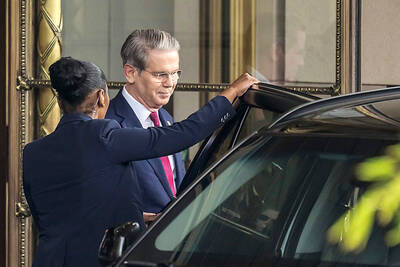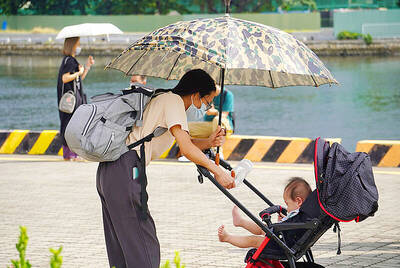When David Bunnell, a magazine publisher who lives in Berkeley, went to a FedEx store to send a package a few years ago, he suddenly drew a blank as he was filling out the forms.
“I couldn’t remember my address,” said Bunnell, 60, with a measure of horror in his voice. “I knew where I lived, and I knew how to get there, but I didn’t know what the address was.”
Bunnell is among tens of millions of baby boomers who are encountering the signs, by turns amusing and disconcerting, that accompany the decline of the brain’s acuity: a good friend’s name suddenly vanishing from memory; a frantic search for eyeglasses only to find them atop the head; milk taken from the refrigerator then put away in a cupboard.
“It’s probably one of the most frightening aspects of the changes we undergo as we age,” said Nancy Ceridwyn, director of educational initiatives at the American Society on Aging. “Our memories are who we are. And if we lose our memories we lose that groundedness of who we are.”
At the same time, boomers are seizing on a mounting body of evidence that suggests that brains contain more plasticity than previously thought, and many people are taking matters into their own hands, doing brain fitness exercises with the same intensity with which they attack a treadmill.
Decaying brains, or the fear thereof, have inspired a mini-industry of brain health products — not just supplements like coenzyme Q10, ginseng and bacopa, but computer-based fitter-brain products as well. Nintendo’s US$19.99 Brain Age 2, a popular video game of simple math and memory exercises, is one. Posit Science’s US$395 computer-based “cognitive behavioral training” exercises are another. MindFit, a US$149 software-based program, combines cognitive assessment of more than a dozen different skills with a personalized training regimen based on that assessment. And for about US$10 a month, worried boomers can subscribe to Web sites like Lumosity.com and Happy-Neuron.com, which offer a variety of cognitive training exercises.
Alvaro Fernandez, whose brain fitness and consulting company, SharpBrains, has a Web site focused on brain fitness research, estimates that the US market for so-called neurosoftware last year reached US$225 million.
Fernandez said that compared with, say, the physical fitness industry, which brings in US$16 billion a year in health club memberships alone, the brain fitness software industry is still in its infancy. Yet it is growing at a 50 percent annual rate, he said, and he expects it to reach US$2 billion by 2015.
From Hula Hoops to Corian countertops, marketers have done very well over the six decades guessing the desires of the generation born after World War II. Now they are making money on that generation’s fears, and it is not just computerized flash card makers with the money-making ideas. Doctors and geneticists have also tapped into the market.
Boomers believe they have ample reason to worry. There is no definitive laboratory test to detect Alzheimer’s disease. Doctors rely on symptoms to make the diagnosis, and most think that by the time symptoms show up the brain damage is already extensive.
By 2050, 11 million to 16 million Americans will have the disease, the Alzheimer’s Association estimates.
“Most people when they turn 50 begin to look at forgetfulness with more seriousness,” said Gene Cohen, director of the Center for Aging, Health and Humanities at George Washington University.
“When you misplace your keys when you’re 25, you don’t pay any attention to it,” he said. “But when you do the identical thing at 50 or older, you raise an eyebrow.”
Lisa C., 47, a clinical psychologist in the San Francisco Bay area, who preferred not to disclose her last name for fear that friends and colleagues would question her mental faculties, misplaced her cellphone one day a few years ago.
She called it from her home phone but heard nothing. Finally, while making dinner a few hours later, she found it — in the freezer.
She was so unnerved, not just by that but also by the poor results of a subsequent mental status test, that she had an MRI done on her brain. The diagnosis: perfectly normal.

Taiwanese Olympic badminton men’s doubles gold medalist Wang Chi-lin (王齊麟) and his new partner, Chiu Hsiang-chieh (邱相榤), clinched the men’s doubles title at the Yonex Taipei Open yesterday, becoming the second Taiwanese team to win a title in the tournament. Ranked 19th in the world, the Taiwanese duo defeated Kang Min-hyuk and Ki Dong-ju of South Korea 21-18, 21-15 in a pulsating 43-minute final to clinch their first doubles title after teaming up last year. Wang, the men’s doubles gold medalist at the 2020 and 2024 Olympics, partnered with Chiu in August last year after the retirement of his teammate Lee Yang

FALSE DOCUMENTS? Actor William Liao said he was ‘voluntarily cooperating’ with police after a suspect was accused of helping to produce false medical certificates Police yesterday questioned at least six entertainers amid allegations of evasion of compulsory military service, with Lee Chuan (李銓), a member of boy band Choc7 (超克7), and actor Daniel Chen (陳大天) among those summoned. The New Taipei City District Prosecutors’ Office in January launched an investigation into a group that was allegedly helping men dodge compulsory military service using falsified medical documents. Actor Darren Wang (王大陸) has been accused of being one of the group’s clients. As the investigation expanded, investigators at New Taipei City’s Yonghe Precinct said that other entertainers commissioned the group to obtain false documents. The main suspect, a man surnamed

US Secretary of the Treasury Scott Bessent and US Trade Representative Jamieson Greer began talks with high-ranking Chinese officials in Switzerland yesterday aiming to de-escalate a dispute that threatens to cut off trade between the world’s two biggest economies and damage the global economy. The US delegation has begun meetings in Geneva with a Chinese delegation led by Chinese Vice Premier He Lifeng (何立峰), Xinhua News Agency said. Diplomats from both sides also confirmed that the talks have begun, but spoke anonymously and the exact location of the talks was not made public. Prospects for a major breakthrough appear dim, but there is

The number of births in Taiwan fell to an all-time monthly low last month, while the population declined for the 16th consecutive month, Ministry of the Interior data released on Friday showed. The number of newborns totaled 8,684, which is 704 births fewer than in March and the lowest monthly figure on record, the ministry said. That is equivalent to roughly one baby born every five minutes and an annual crude birthrate of 4.52 per 1,000 people, the ministry added. Meanwhile, 17,205 deaths were recorded, resulting in a natural population decrease of 8,521, the data showed. More people are also leaving Taiwan, with net